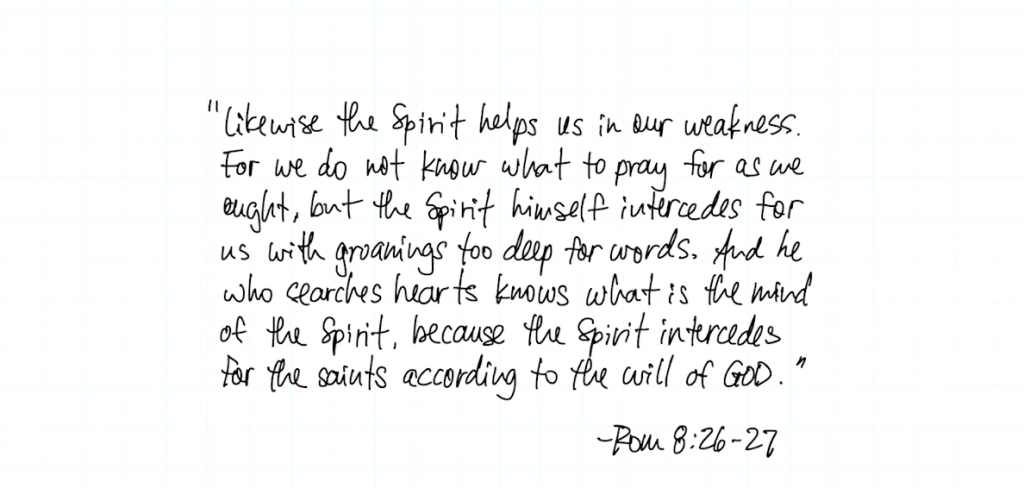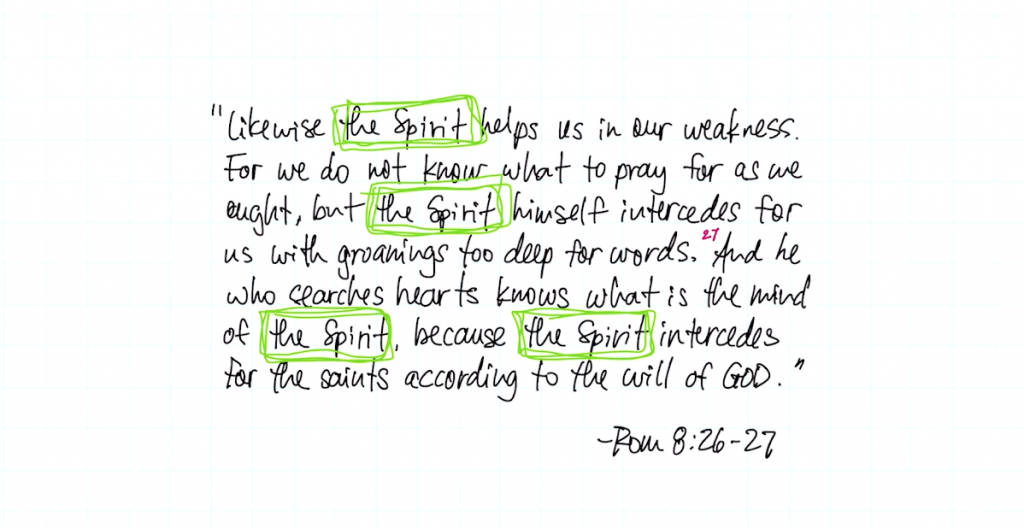Do your kids ever come to you with Bible questions? I never know what to expect when mine come around the corner. It’s basically, “Dad, what does the Bible say about EVERYTHING?”
I know you. As a dad, you get it. You attend church and make sure your kids are connected to the student ministry. Awesome. But, when it comes to studying the Bible, I get so many guys who say they don’t know where to start. Guys have simply never been taught how to study the Bible. We’re going to change that today.
What follows is a ten-minute video teaching you the foundations for how to study the Word. Whether you’re a Bible novice or a weathered vet, you’ll pick up some helpful skills for gleaning from the Scriptures.
This is typically exclusive content for the Father On Purpose community. But we wanted to be sure you didn’t miss it. Watch the full video below—or at How to study a topic in your Bible.
What does the Bible say about everything? Here’s how to study a topic in your Bible (9:28)
Dad, what does the Bible say about everything?
I’m about to unlock something for you here. Let’s say you wanted to learn about what the Bible had to say about anger. You can go to Open Bible or Bible Gateway and type in “anger”. You’ll get a list of several Scriptures. That’s not a bad place to start.
But, here’s the vital part: don’t equate finding a list of verses with actually having spent time studying that topic through Scripture.
Let’s be godly dads who dig in to Scripture, study, pray, and let the Holy Spirit work on us through Scripture. The method in this video is one that will help you slow down.
With anger, however you want to look up the topic of “anger”—go for it. Use an internet search, use a concordance, whatever. Point is, get a list of verses on anger.
James 1:19-20 is one of the verses you’ll quickly find in your list. It says: Know this, my beloved brothers: let every person be quick to hear, slow to speak, slow to anger; 20 for the anger of man does not produce the righteousness of God.
Now, we can learn a ton about anger from this one verse. But, stop, we want to think of this verse as a solar system. Let’s think of James 1:19 as the sun in our system. You might ask, “Well, what if I start with the wrong verse on anger?” Answer: doesn’t matter. God’s Word is one. You’ll be fine.

You’ll quickly find other Scriptures will orbit around James 1:19-20. You might find a few verses like:
- Ephesians 4:31
- Colossians 3:8
- Psalm 37:8
- Ephesians 4:26
- Ecclesiastes 7:9
- Proverbs 19:11
- Proverbs 15:1
- maybe a few other verses cross-referenced here.

Here’s what’s happening, think of this like when you’re cleaning a house. You go room to room clearing one section at a time—making sure that room is good before moving to the next room.
If James 1:19 has five or so cross-referenced verses. Those five or so verses will lead you to 15-20 other verses pretty quickly—once you start digging in.
Why is all of this valuable for you as a dad? Often, we’re scared to study God’s Word. We’re concerned or fearful. God does not want this. It’s up to us to learn techniques like this one. We don’t need a Ph. D. in the Bible to lead our families well.
But, we do need a command of Scripture. Being able to dig in a study topically will help. We’ll be able to knit the Bible together on certain topics. It might be anger now, but you’ll learn about patience, love, covenant, prayer, you name it—you want to be able to see the whole counsel of God on any given topic.
There’s a few ways to run through these verses. You decide how you want to approach your next topical study.
#1 Consider the list method.

Like the list above, you could list all of the verses down in a line.
- Ephesians 4:31
- Colossians 3:8
- Psalm 37:8
- Ephesians 4:26
- Ecclesiastes 7:9
- Proverbs 19:11
- Proverbs 15:1
- you get the idea…
Make sure you look up those verses, just check them off as you go. Then, after that, you can move on other other rooms in the house.
#2 Write the verses down.
Consider handwriting all of these Scriptures. Don’t freak out. Think about what might happen if you took the time to write each verse down.

Why in the world would I say to write these verses down—word for word. Have a lost my mind?

The biggest reason is it will downshift you. It will slow you down to the point where I find it becomes easier to hear from God. If I’m too quick through this process, I’ll miss a lot. Writing the verses down will force you to slow down and think through them.
#3 Look through the verses for themes.
There’s lots of ways to get at this. Many folks have their own models.

I use the O-I-A approach:
- Observation: what does the text say? Just observe or look. Don’t talk to Scripture, let it talk to you!
- Interpretation: what does it mean? If God says this or that about anger and this about patience, what’s that mean?
- Application: what do I do about it? Let Scripture speak to you. If God says to be slow to anger and He also says be quick to hear, quick to listen, and slow to speak. Great, how can I apply that to my life? I can become quicker to hear, quicker to listen, and slower to speak. That’s a recipe for less anger.
You need to get this right as a dad. You need these skills for yourself. So you can know Scripture. And, you need to know how to teach your child to study the bible. The church is one generation away from being extinct. You and I are that current generation. Being able to take a topic, see what Scripture has to say, and apply it to your life —and to lives around you—is super important.
Now, it’s time for you to try this process yourself. Whether you use an iPad or the back of a napkin, spend time in Scripture—going through what God’s Word has to say on a given topic. Hopefully, this will help you be a more capable student of Scripture. The next time your kid asks, “Dad, what does the Bible say about…?” You’ll be ready. We’ll be right here with you on your journey.
Your Mission
Grab a Bible and something to take notes—digital or paper. Think of a topic right now. Pick prayer, anger, lust, money—whatever topic is on the front of your mind. Take that topic and spend a few minutes diving in using the steps in this post. Let me know how it goes.

Like this post and want to write for Manhood Journey? Email Ryan Sanders for more details.












